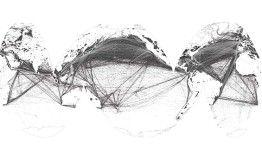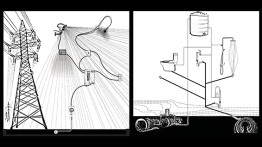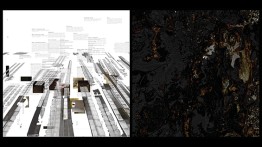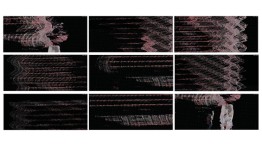MArch II 2018 Graduate Thesis Exhibition: Towards a New[Hypo]thesis
Tue, Sep 11, 6:30pm - Fri, Sep 28, 2018 6:30pm
This exhibition presents the work of the 2017-2018 Master of Architecture II Graduate Design Studio, focusing on Thesis projects but presenting a selection of work from the entire academic year of the graduate program.
HYPOTHESIS: 1350–1400: Middle English, Latin
I. A stated proposition assumed as a premise in an argument
II. A proposition laid down or stated as a theme to be discussed or proved
III. A proposition to be proved or one advanced without proof
IV. A dissertation embodying results of original research and especially substantiating a specific view
V. A statement or theory that is put forward as a premise to be developed through a proposal/design
Graduate thesis provides a unique opportunity to test new architectural paradigms that are unique to an individual’s own interests in architecture, as rooted within a larger question in architecture today. Within the formulation of a key argument, each student was asked to invent [verbal and visual] evidence with hopes of radically augmenting novel architectural realities through the lens of a ‘hypothesis’ as an investigative design proposition. The unique culmination of this year’s projects aims to test the conceptual underpinnings of key subject areas through a sequence of deeply varied themes that challenge the future of architectural discourse and the world we inhabit in the form of a critical question. The process of discovery and translation from research to the visualization of a proposed argument [and back and forth] became an essential conceptual framework, stimulating each project’s contextual groundwork. The projects were activated by an ‘animate’ method of thinking where the translational process of ‘research as design’ was challenged to capture time and reveal the essence of each thesis argument as an iterative time-lapse within a novel spatial trajectory. This animate reveal inspired novel methods of representation as a sequence of infused matrices, tying together variant conceptual, structural, material and aesthetic goals of each hypothesis.
Thesis topics include: Virtual Tectonics: Re-Reading the Ordinary; Hybrid Systems: Technology, Rituals and Domesticity; OilScapes: Re-Mapping the Power Politics; The Architecture of [Objects] of Architecture: Material Indexes, Cultural Icons and the Mechanisms of Signification; Fluid Infrastructure: Envisioning Mechanisms of De-Centralized Transportation; Mapping Resiliency: Flooded New York; Body Form: Wrapping Lines to Surface to Poché; City Theater: Towards a New Urbanism; Making Sense(s): Building a Novel Material Pedagogy.
Opening Reception: Tuesday 11 September 6:30-8:30pm
Gallery Hours: Tuesday – Sunday, 12-7pm
This exhibition is free and open to the public.
View the full Fall 2018 Lectures and Events List.
Located in the Arthur A. Houghton Jr. Gallery, 7 East 7th Street, 2nd Floor, between Third and Fourth Avenues





![The Architecture of [Objects] of Architecture: Material Indexes, Cultural Icons and the Mechanisms of Signification The Architecture of [Objects] of Architecture: Material Indexes, Cultural Icons and the Mechanisms of Signification](/sites/default/files/styles/262w_16_9/public/05_Option%20A_web.jpg?itok=McOT7yx9)




